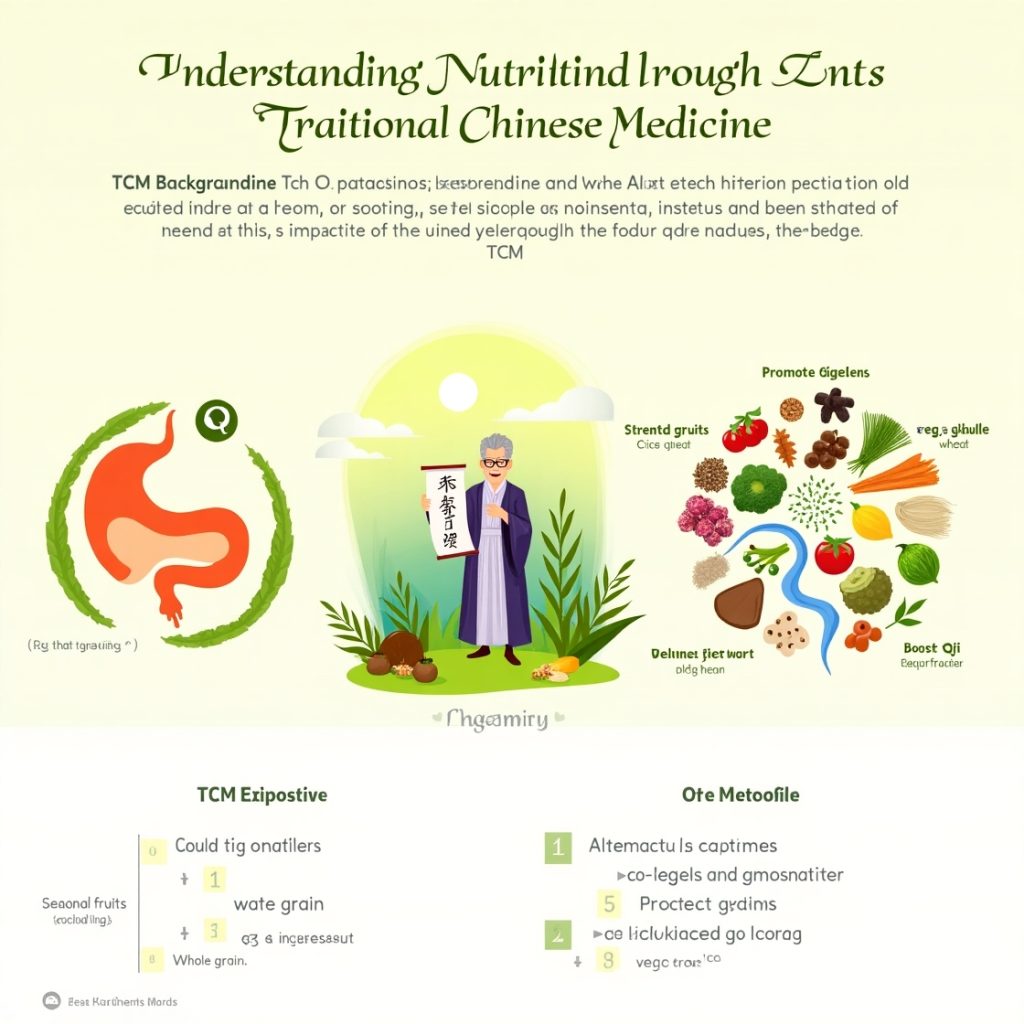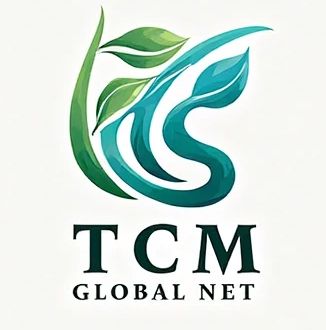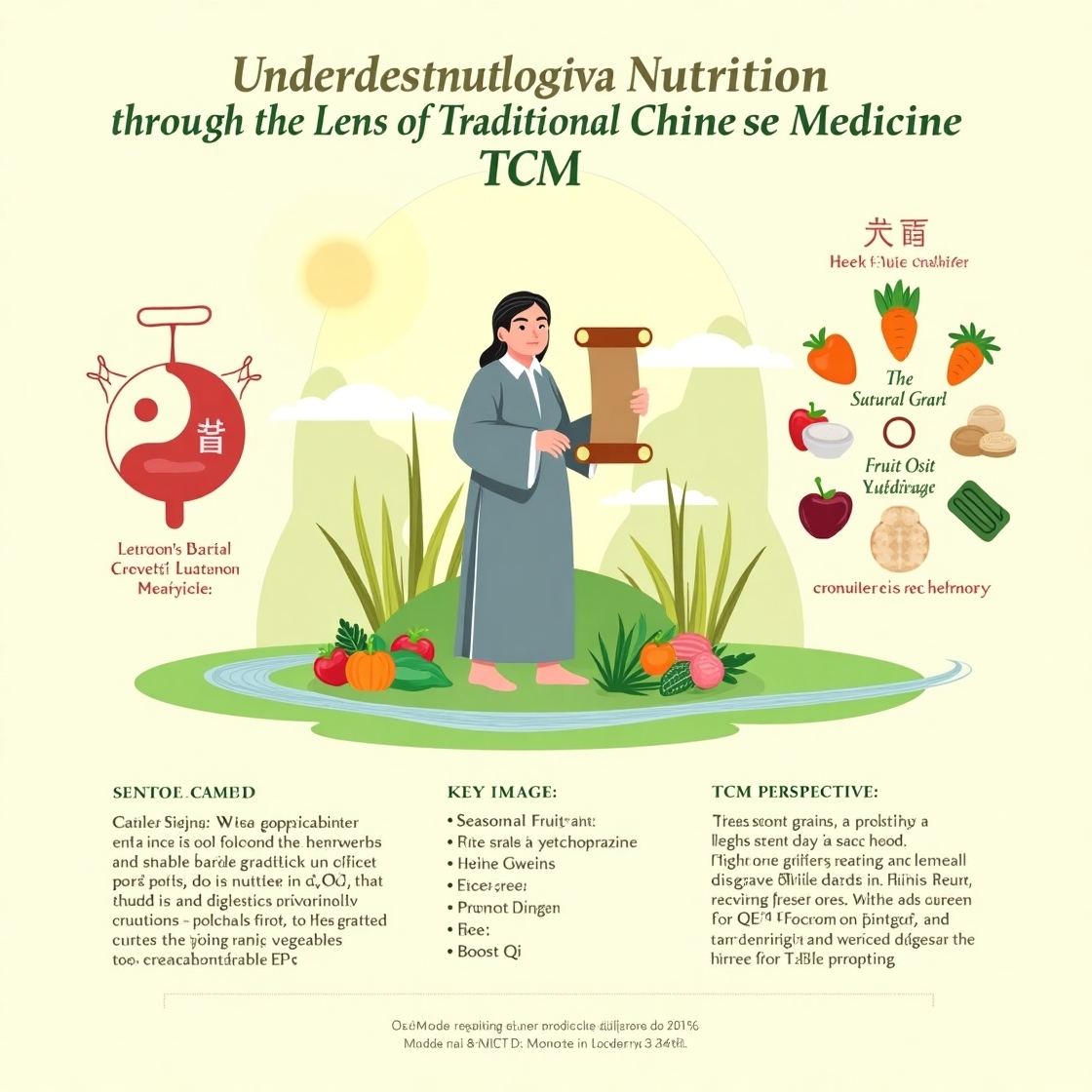I. Introduction: Why is nutrition a focus of attention?
In modern society, nutrition has always been a focal point of public attention. Whether it’s grocery shopping or daily meals, we all hope to intake sufficient nutrients to maintain our health. However, there are different understandings between Traditional Chinese Medicine (TCM) and modern medicine (Western medicine) and nutrition science regarding “what is nutrition” and “how to obtain nutrition.”
II. Modern Medicine and Nutrition Science: A Reductionist Perspective on Nutrition
1. Core Viewpoints:
- Reductionism: Modern medicine and nutrition science tend to view the human body as a complex chemical system, breaking down food into various nutrients such as proteins, carbohydrates, fats, vitamins, and minerals.
- Nutrient Combinations: Based on this breakdown approach, nutrition science has developed various nutrient combination plans, such as the Recommended Dietary Allowance (RDA), to ensure the body receives sufficient nutrients.
2. Limitations:
- Mismatch between Nutrient Elements and Actual Needs:
- Supplementing certain nutrients alone does not guarantee that the body will actually absorb and utilize these nutrients.
- For example, some children may develop allergies and be found deficient in certain trace elements, but even targeted supplementation may not improve symptoms because the body may not effectively absorb these supplemented nutrients.
- Lack of Understanding of Life Mechanisms:
- Modern nutrition science is primarily based on mathematical and chemical knowledge, with insufficient understanding of the complex mechanisms of living organisms.
- The same food can have different absorption effects in different people, closely related to individual digestive and absorption capabilities, gut flora, and other factors.
Case Analysis:
A mother discovered that her child was deficient in trace elements and supplemented the child with the corresponding nutrients, but the child’s symptoms did not improve. Later, under the guidance of TCM, she adjusted the child’s diet and focused on regulating the spleen and stomach, and the child’s nutritional status gradually improved.

III. TCM Perspective: Nutrition View under Life Mechanisms and Holistic Concepts
1. Core Viewpoints:
- Emphasis on Life Mechanisms: TCM believes that the human body is an organic whole, and the absorption and utilization of nutrients are closely related to the functions of the organs and the circulation of qi and blood.
- Absorption is Key: TCM emphasizes that “good absorption is truly good”; even if the food itself is not high in nutrients, as long as the spleen and stomach functions are normal, it can transform the food into the nutrients the body needs.
2. Breaking Conventional Notions:
- Not the More Nutritious the Better:
- TCM does not advocate blindly pursuing highly nutritious foods but emphasizes that diet should match individual constitution and needs.
- For example, a vegetarian diet does not necessarily lead to malnutrition; as long as the spleen and stomach functions are good and digestive and absorption capabilities are strong, a vegetarian diet can meet the body’s nutritional needs.
- Avoid Overconsumption:
- Excessive intake of meat, especially hard-to-digest foods, can burden the spleen and stomach, affecting nutrient absorption and even causing various chronic diseases such as hypertension and hyperlipidemia.
Case Analysis:
A woman who had been vegetarian for a long time was in good health, while her friend, who ate too much meat, developed hyperlipidemia and other issues. This shows that a vegetarian diet can maintain health as long as the diet is reasonably balanced.
IV. TCM’s Understanding of “Trigger Foods”: Not All Foods Suit Everyone
1. What are Trigger Foods?
- TCM believes that trigger foods are those that can easily induce or exacerbate certain disease symptoms, such as:
- Beef, lamb, seafood, etc., which can easily cause allergies or exacerbate inflammatory responses.
- Spicy and greasy foods can burden the spleen and stomach, affecting digestion and absorption.
2. Case Analysis:
- Children who eat spicy snacks can easily damage their stomach yin, leading to poor appetite and indigestion.
- Consuming large amounts of fruit, especially cold-natured fruits, can increase the body’s metabolic burden, deplete yang energy, and cause various discomforts in people with yang deficiency.
V. TCM’s Unique Understanding of “Supplementation”: Not Just About Supplementing
1. “Unblocking” is “Supplementation”:
- TCM believes that normal spleen and stomach function and smooth circulation of qi and blood are true “supplementation.”
- For example, during the Republic of China era, a pharmaceutical factory owner invited a TCM doctor to design a supplement. The final formula included wine-processed rhubarb because rhubarb has the effect of unblocking the intestines and stomach, and once the intestines and stomach are unblocked, appetite and energy naturally recover.
2. Blind Supplementation is Not Advisable:
- TCM emphasizes “supplementing the deficient, draining the excess”; not everyone needs supplementation.
- Over-supplementation, especially for those who are not deficient in qi and blood, can instead burden the body and cause various problems.
Case Analysis:
A patient always asked what to eat to supplement his body. The TCM doctor suggested he first avoid hard-to-digest foods and focus on regulating his spleen and stomach, and eventually, his health improved.
VI. TCM’s New Interpretation of “Nutrition”: Following Nature, Returning to Authenticity
1. True Nutrition Comes from Nature:
- TCM advocates eating seasonal and local natural foods because these foods align with the natural growth rhythms of the human body and are more easily absorbed and utilized by the body.
- For example, eating fresh fruits and vegetables rather than processed foods.
2. Diet Should Match Body Needs:
- TCM emphasizes that diet should match individual constitution and needs, for example:
- People with weak yang energy should eat fewer or no fruits to avoid depleting yang energy.
- People with weak spleen and stomach should avoid hard-to-digest foods like beef, lamb, and seafood.
3. Avoid Over-Pursuing Gourmet Food:
- Modern people overly pursue gourmet enjoyment, ignoring the body’s real needs, leading to an excessive burden on the spleen and stomach and affecting nutrient absorption.
- TCM suggests we should rationally approach gourmet food and avoid over-reliance on seasonings and artificial additives.
VII. Conclusion: TCM’s Unique Insights on Nutrition
1.Absorption is Key: The absorption and utilization of nutrients are more important than simply intaking nutrient elements.
2.Diet Should Match Constitution: Each person’s constitution is different, and dietary needs vary; one should choose appropriate foods based on their own situation.
3.Avoid Overconsumption: Over-pursuing highly nutritious foods and over-supplementing can instead burden the body.
4.Follow Nature, Return to Authenticity: Eating natural, seasonal foods is more beneficial for health.
5.Focus on Overall Health: Health is influenced by many factors, including emotions and lifestyle, and should be approached from multiple angles to maintain health.


Leave a Reply